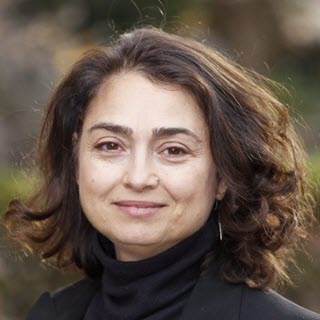This interview is adapted from a segment in the Brookings Cafeteria podcast called “Coffee Break,” where a scholar at Brookings introduces their background, research interests, and offers book recommendations. The transcript has been slightly edited from the audio recording.
My name is Stephanie Aaronson and I’m the vice president and director of the Economic Studies program at the Brookings Institution.
Q: Where did you grow up?
I mostly grew up in Massachusetts, although now I’ve spent about half of my life in Washington, D.C.
Q: What inspired you to become a scholar?
When I was growing up, my family was very interested in politics and social issues, and I became interested in those issues, too. And as I thought about what I wanted to be, I wanted to find a way that I could have an impact. I think my disposition led me to choose being a scholar, taking more of an academic approach to addressing different social and economic issues that the country faces. But I was always interested in doing so with a focus on what would be useful for economic policy.
Q: What do you think is the most important issue we’re facing today?
I think the most important issue we’re facing today is how we can make our economy work well for everyone. America is one of the wealthiest countries in the world, but there are still a lot of people who are insecure and don’t have the resources that they need to reach their full potential. And the question I think we face is how can we ensure that our economic system and our institutions are working for everyone. I’m particularly interested in the question of how we can make sure that our labor market in particular is working for everyone who wants a job.
Q: What are you working on now?
I just finished writing a paper on whether what we call hot labor markets, periods when the unemployment rate is very low, are particularly beneficial to workers who are normally disadvantaged in the economy. Knowing the answer to that question can help policymakers to figure out how they can best promote the expansion in a way that will serve everyone.
Q: If you could recommend any book to our listeners, what would it be?
I think one book that really changed my perspective was Guns, Germs and Steel by Jared Diamond. He has a very interesting take on what it is that initially helped different parts of the world to develop. I think when we think about economic development, a lot of times there’s a lot of value judgment attached to how we view countries’ relative economic success, and we blame culture or political structures when countries are less successful. He really gets down to the basics of what are the resources that are available in different parts of the world and how that affected their economic trajectories.
The Brookings Institution is committed to quality, independence, and impact.
We are supported by a diverse array of funders. In line with our values and policies, each Brookings publication represents the sole views of its author(s).


Commentary
Meet Stephanie Aaronson, vice president and director of Economic Studies
November 12, 2019